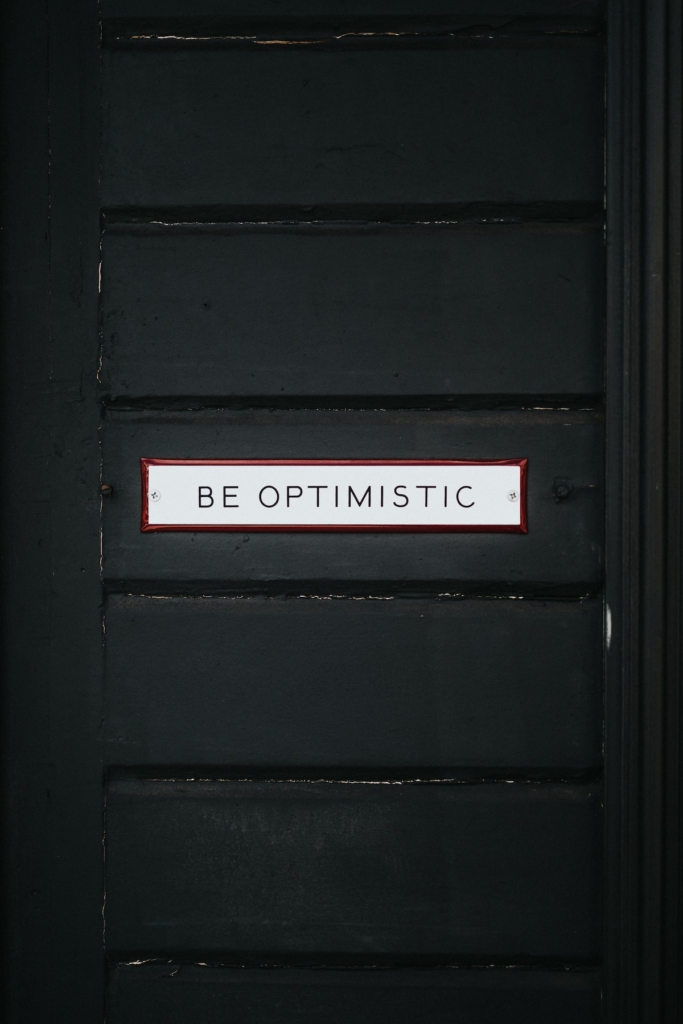REWIRE YOUR BRAIN WITH GRATITUDE
S0 2021 Can Be Better, No Matter What

Let’s face it–2020 could have been better. A lot better.
But it’s a new year, and that means a fresh start. So if you’re like a lot of people right now, you’re probably hoping and praying that 2021 will be different.
And it can be. There’s one thing you can do to almost guarantee that 2021 will be your best year yet.
And that thing is (drumroll please): practicing gratitude.
Yup. That’s it. Be more grateful and your whole world will change.
Now, this may sound like a bunch of hippy-dippy nonsense, but it’s backed up by science and hundreds of years of ancient eastern medicine. Don’t believe us? Just keep reading.
The Science Behind Gratitude
You know the old phrase, “perception is reality”? Well, that’s true! Even if you can’t change the fact that there’s a massive global pandemic wreaking havoc on people’s health, financial status, work, and family lives, you can still change your perspective on what you do have.
And western science backs that claim up. In fact, studies have shown that our brains literally rewire themselves when we make a conscious effort to practice gratitude. This rewiring can have lots of benefits. It lowers people’s stress levels, improves their sleep, boosts employee morale, strengthens willpower, and keeps you calm in tough situations.
Practicing gratitude has a snowball effect. The more we appreciate what we have, the more our brains recognize things to be grateful for. This means we’re more likely to see the good things in life, rather than focusing on the negative things. It’s kind of like your brain has a gratitude muscle that can become stronger with a little exercise.
Eastern Medicine and Gratitude
 Western science is finally catching up to what different medical practices in the East have known for centuries: gratitude is just plain good for you.
Western science is finally catching up to what different medical practices in the East have known for centuries: gratitude is just plain good for you.
In the ancient Indian practice of Ayurveda, emotions are directly connected to the physical state of our body. Different types of emotions are related to the different dosha or energy types. Pitta dosha is connected to hot, fiery emotions like anger, irritability, annoyance, judgment, and intolerance. When you feel these emotions, the pitta dosha in your body increases, and this can lead to physical symptoms like inflammation, infection, and ulcers. That means to keep your body healthy you need to spend less time in emotional states related to pitta. Practicing gratitude can help switch these emotions to ones of peace and thankfulness and keep your body in harmony.
In Ayurveda, the practice of Pratipaksha Bhavana is all about replacing negative thoughts with positive ones. Though you have to train your brain to do this at first, eventually it becomes a habit and you’ll have a healthier, more positive mindset.
Ayurveda also emphasizes the importance of living in the moment. Nothing lasts forever, and everything changes. We take for granted the people and experiences that are right in our faces because they seem like they’ll be there forever. But the impermanence of these things is what makes them so precious! And it’s easy to forget that the things you’re upset about right this moment are not going to matter in a week, a month, or a year. So stop worrying about things that don’t matter and start paying attention to the amazing people and things you have in your life.
When it comes to Traditional Chinese Medicine (TCM), gratitude is all about balance. Practicing thankfulness can balance out our meridians (Qi pathways that run through our bodies) and recharge the organs that they channel Qi to.
Like in Ayurveda, TCM understands emotions as connected to body parts. The Liver, Heart and Kidney are heavily influenced by the emotions we feel. We store our energy and balance in the Kidney.s The Kidneys hold the energy known as jing that we were all born with. Practicing gratitude can nurture this jing, while negative emotions can harm it. Thankfulness allows us to replenish our jing, rejuvenate our kidneys, and restore balance throughout our body.
How To Practice Gratitude
Practicing gratitude is like exercising any other muscle. It’s awkward and even difficult at first, but as time goes one, it becomes easier and easier. To get you started, here are some ideas to be more grateful.
Journaling with GIFTS
 It’s easy to be grateful for GIFTS. No, we’re not talking about presents. We’re talking about the acronym, GIFTS which stands for Growth, Inspiration, Friends/Family, Tranquility, and Surprise. Use these words to help focus on things you have in your life to be grateful for. Take 10 or 15 minutes a day to write down your thoughts or list of gratitude in a journal or an app on your phone.
It’s easy to be grateful for GIFTS. No, we’re not talking about presents. We’re talking about the acronym, GIFTS which stands for Growth, Inspiration, Friends/Family, Tranquility, and Surprise. Use these words to help focus on things you have in your life to be grateful for. Take 10 or 15 minutes a day to write down your thoughts or list of gratitude in a journal or an app on your phone.
- Growth: Have you grown, improved, or become more knowledgeable about something? It doesn’t matter if it’s big–like learning a new language–or small–like trying a new food.
- Inspiration: What inspired you today? Did you read a poem, hear a song, or see someone do something you admired?
- Friends and family: Who do you have in your life that cares about you? It could be your mom, gym buddy, or even the barista who gives you an extra shot of espresso without you asking.
- Tranquility: Start searching for little moments of peace throughout your day. Maybe it’s your morning walk, cooking dinner with a glass of wine, or doing yoga before bed.
- Surprise: Life is all about the unexpected. What little surprise showed up in your day to remind you that you can’t control or predict everything?
If you’re not into journaling, that’s ok. Here are a few other ideas to practice gratitude!
- At the end of every day, say or write down three things you’re grateful for that day. It could be that your partner did the dishes without being asked, or that you had your favorite latte from the corner coffee shop. It doesn’t matter how big or small the things are.
- Write gratitude letters to friends and family and send them through snail mail.
- Volunteer to give back to your community. Whether it’s virtual or in-person, volunteering can remind you how much you have to be thankful for.
- Sometimes, saying things out loud can make it easier to believe them. Try starting your day with affirmations that express all the things you have to be grateful for. A few good ones are, “I am thankful for a safe home,” “I appreciate my friends who enrich my life in so many ways,” “I am thankful for everything my body allows me to do,” and “I am grateful for the beauty and power of nature.”
2020 was rough, and for many of us, it felt like there was nothing we could do to make things better. But for 2021, try shifting your perspective and recognizing how simply reorienting your mindset can have major benefits for your life. So no matter what 2021 holds, you know you have the power to see the good in it.
Newer
What You Need To Know About How and Why To Start Oil Pulling
Older
How To Prevent Or Stop Memory Loss, According to TCM
Comments (0)
Leave a reply
You must be logged in to post a comment.




